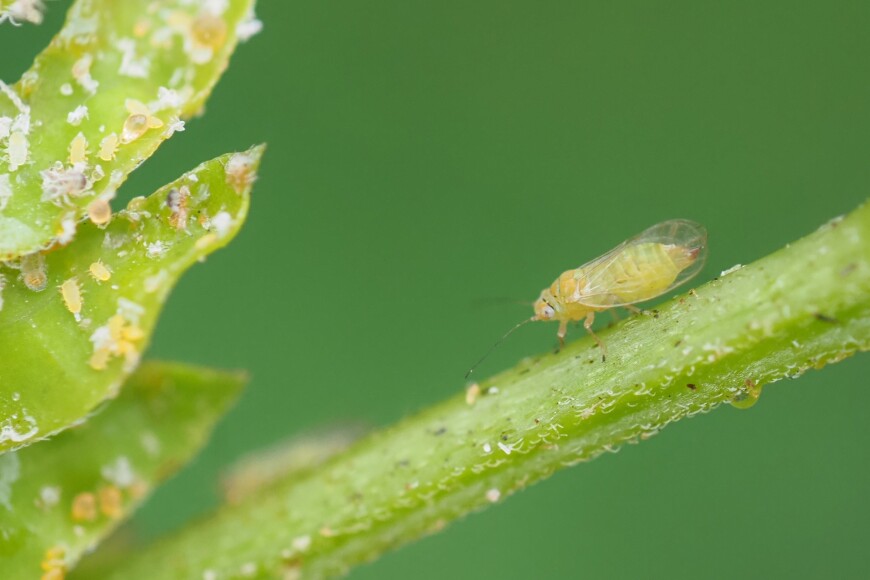In November 2024, two team members returned to Funafuti, bringing more psyllid natural enemies to combat Leucaena on Vaitupu, Tuvalu’s largest atoll. Vaitupu is one of nine islands that make up the nation of Tuvalu, and is 129 km north-northwest of Funafuti. This work is also part of Manaaki Whenua’s Natural Enemies - Natural Solutions (NENS) programme. This release was also of particular significance to one of the weed biocontrol group’s newest members, Indigo Michael, who joined in July 2024 as a NENS Pacific Programme Coordinator and whose family hail from the Tuvalu islands of Nukufetau and Vaitupu.
“I’m the first in my family to return to Tuvalu for two generations,” says Indigo. “My great-grandmother was born in Vaitupu and would tell me stories of her motherland growing up. But I only heard about Tuvalu and read about it in books. To be able to come to the fenua for such meaningful and important work, and to serve the community that I feel such a strong connection to, was rewarding.”
Leucaena has become an aggressive invader in many tropical and subtropical regions and is listed in the top 100 of the world’s worst invasive plant species. It is considered a major weed across the Pacific, spread both accidentally and intentionally for its beneficial properties such as leaf fodder for animals, nitrogen fixing for agriculture, wood for building materials and fires, shade, and soil stabilisation.
Once touted as the ‘miracle tree’, Leucaena can quickly outcompete and replace other vegetation, forming dense, impenetrable thickets, impacting nutrient cycling and soil chemistry and disrupting natural successional processes. It quickly colonises disturbed ground, meaning it is expected to be an increasing problem under more turbulent weather systems brought about by climate change.
With a land area of only 5.6 square kilometres and a population of just 1,184 residents, improving the islands’ resilience to invasive plants is paramount. Touching down in Funafuti on November 25, the psyllids had flown 3,180 km, but the journey wasn’t over yet. Vaitupu doesn’t have an airstrip, so the trip had to be coordinated with the timing of the very infrequent inter-island boat that was leaving to pick up the Funafuti children that go to boarding school in Vaitupu. On 28 November, the team handed over the psyllids to staff at the Department of Agriculture to make the last leg of their journey, a 6-hour boat ride from Funafuti to Vaitupu, where they would be released. The release was a success, and the team hopes this will give the island another tool to help in their fight against climate change.
“It’s confronting going to Tuvalu and seeing the reality of a small island nation facing the impacts of climate change in all areas of life,” says Indigo. “Equipping Tuvalu with long-lasting, sustainable solutions to invasive weeds will not only increase resilience against climate change, but free-up resources once used for managing these weeds that can now be used for improving the health and well-being of Tuvaluans and their fenua.”

Heteropsylla cubana psyllid
Funding
The Vanuatu project is funded by New Zealand’s Ministry of Foreign Affairs and Trade (MFAT) as part of the Vanuatu Pasture Weeds Project. The Tuvalu project is funded by MFAT through the Restoring Islands Resilience programme administered by SPREP, and previously through the MFAT-funded Managing Invasive Species for Climate Change Adaptation in the Pacific (MISCCAP) programme, as well as by the GEF-6 Regional Invasives Project.
Key contact

